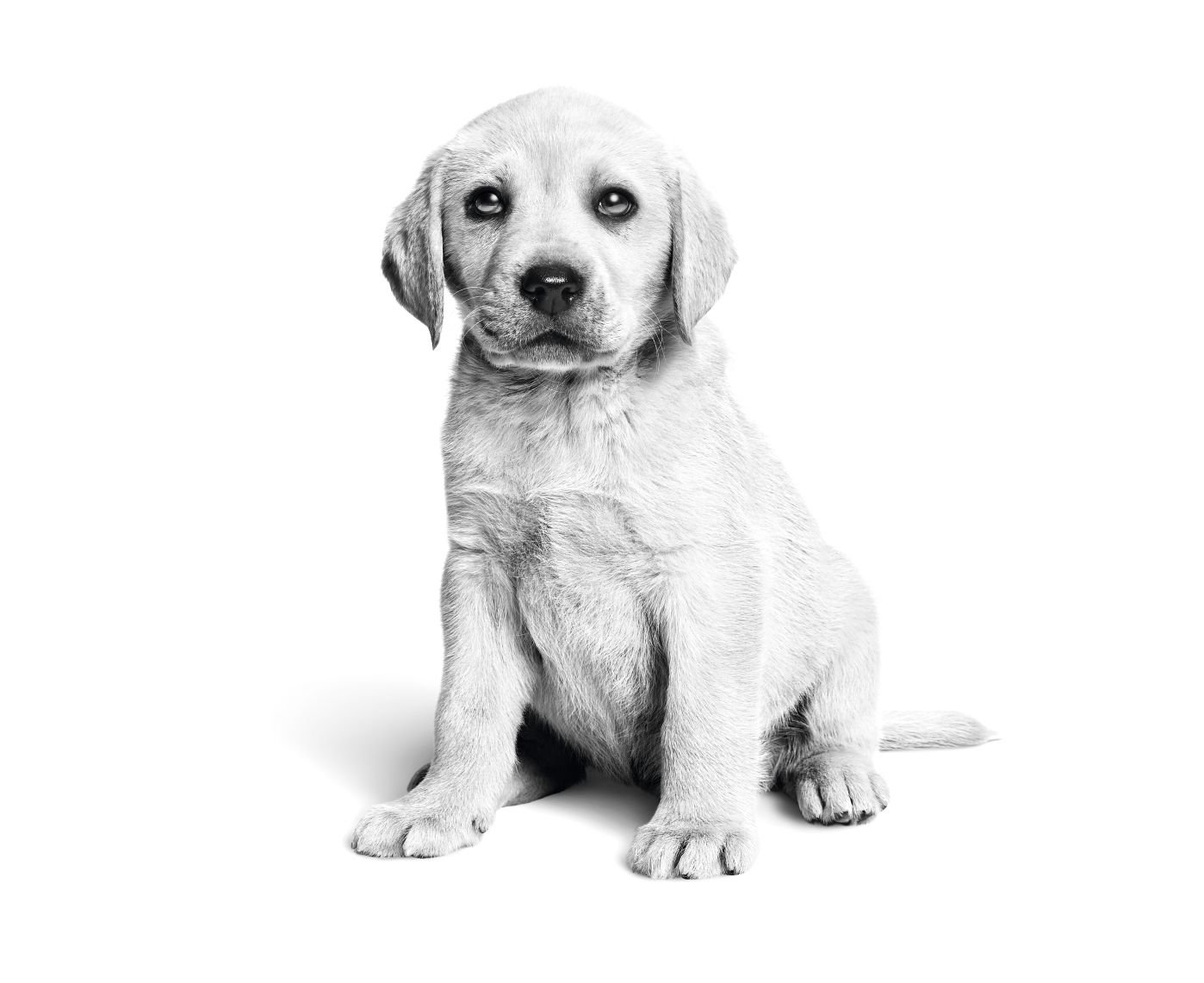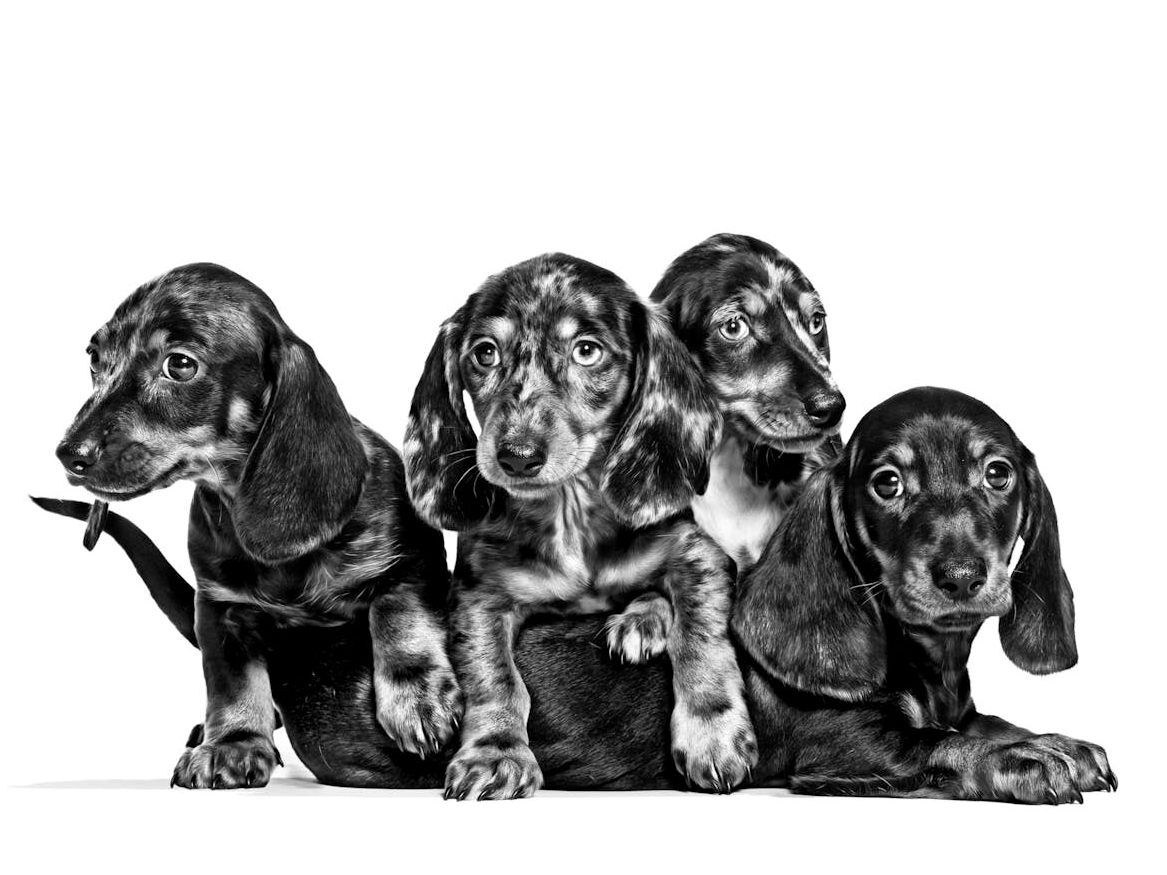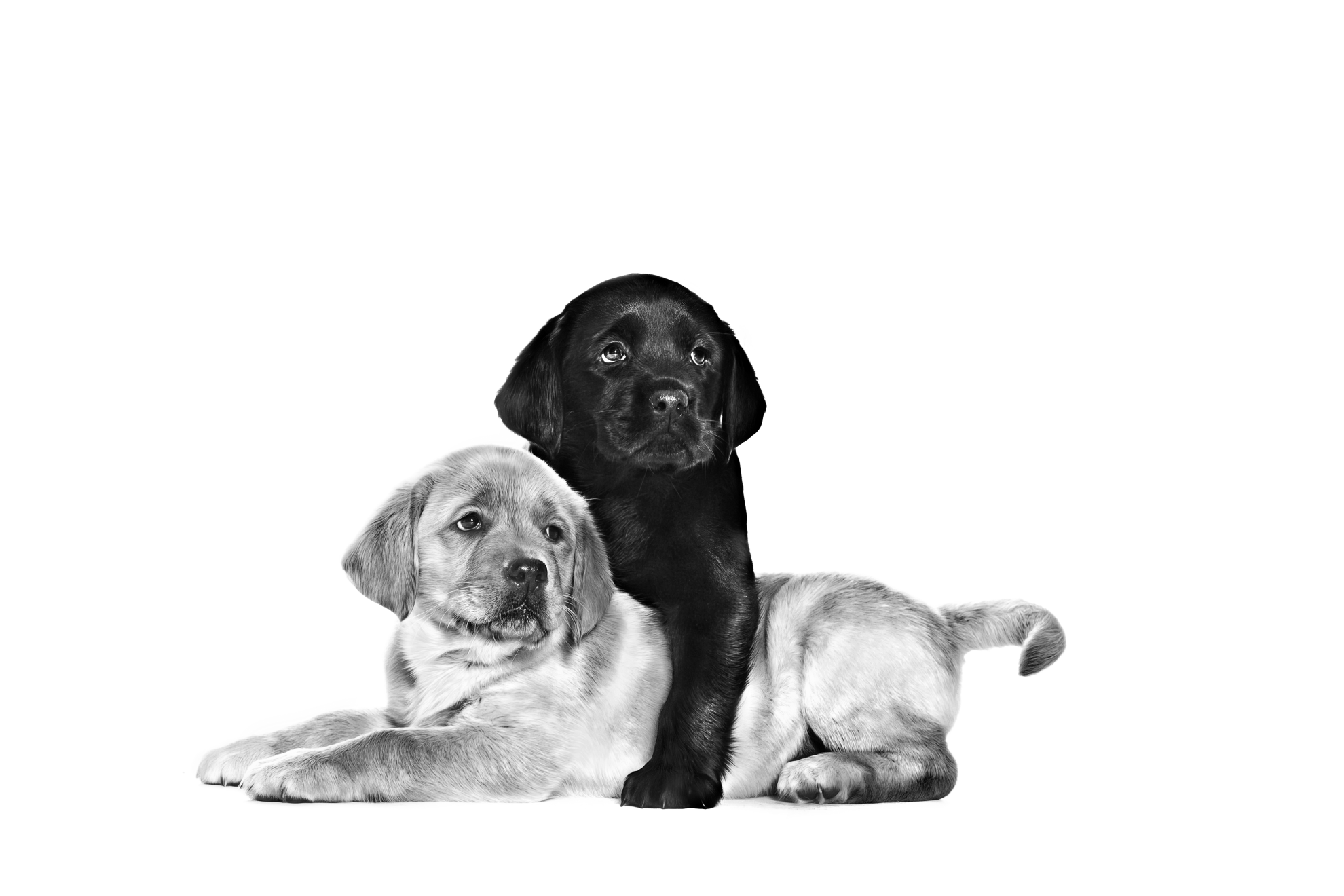
Your Puppy's Development Week by Week
In the first weeks after birth, your puppy will undergo rapid physical growth and behavioral changes. Once they arrive in your home, it’s your responsibility as their owner to support your dog’s development, stage by stage, through this vital early puppy timeline. This will help them grow into healthy adult dogs.
Your puppy’s growth patterns will depend on their sex but also their breed, with small breed dogs such as Chihuahuas or Yorkshire Terriers developing at a different pace from larger breeds such as Labrador Retrievers or German Shepherds. Knowing what to expect can help you prepare for upcoming puppy milestones and identify and deal with any issues early.

Your Newborn Puppy’s Development From Birth On
A newborn puppy's first 24 hours are crucial. They are tiny and fragile but in their first hours on earth they instinctively use scent and touch to find their way to their mother for milk and to their littermates for warmth (puppies can’t regulate their own body temperature yet). Newborn puppies cannot see yet and spend most of their time sleeping.
It’s important for your newborn puppy to suckle within the first hours after they are born. Colostrum, their mother’s first, highly concentrated milk, is intensely packed with nutrients to support their fledgling immune systems and their development.

The Newborn Stage
Birth to Four Weeks
In their first days, fragile newborn puppies need help and support with temperature regulation and feeding, so their breeder will ensure the whelping box in which they are born is a carefully controlled environment. Newborn puppies need to be kept at the right temperature (between 85°F and 90°F initially and then 80°F for seven to ten days) in a well-ventilated area that’s not too drafty or stuffy and with the right humidity level (65-70%).
The newborn stage of a puppy’s life is from birth to around four weeks. In their first weeks, a newborn puppy’s weight should be monitored closely. While puppies usually weigh around 1-5% of their adult weight at birth, they should put on weight quickly. Exactly how much will depend on their breed size: puppies should normally gain around half an ounce a day for each pound they will weigh as an adult dog (which depends on their breed). Between days 9 and 13 of a newborn puppy’s life, their weight should double.
Newborn Milestones to Look Out For
While newborn puppies spend most of their time feeding or sleeping in their early weeks (both are important for healthy development), there are some exciting milestones to keep an eye out for
A newborn puppy’s eyes usually open between 10 and 14 days after birth
A puppy’s hearing should start to function when they are between two and three weeks old
Puppies can crawl as soon as they’re born, but as they grow they will hone their skills, starting to move around more confidently and energetically
A responsible breeder will arrange a puppy’s first vet visit during their early weeks to check that all is well (and most likely start a worming treatment)
Gentle handling by their lucky humans (taking care not to disturb their rest) can help young puppies get used to human contact, paving the way for easier socialization in later life
Your puppy will probably be standing up (on wobbly little legs) by around two weeks and will rapidly start to use their new found walking skills to explore and climb (including all over their littermates)

Your Puppy’s Weaning Stage
Four to Eight Weeks
The weaning process begins when your puppy begins to eat their first solid food: they will most likely demonstrate that they are ready for this stage by starting to show an interest in their mother’s food.
Your four-week-old puppy has already changed dramatically and is no longer the tiny, fragile being of their first days on earth. In terms of physical development, your puppy’s weight increases dramatically and their first teeth should also start to appear (although their jaw and tooth strength is still relatively weak). They may start to show great interest in puppy chew toys as the teething phase begins.
They shed their fluffy first coat, replaced by their grown-up fur.
While your puppy is growing and developing fast, all dogs, no matter their breed, go through a so-called 'immunity gap' between 4 and 12 weeks. In this period, they are particularly susceptible to illness. They will no longer be protected by the antibodies from their mother’s colostrum but haven’t yet begun developing their own protective immunity. That will be aided by the vaccinations that begin when they are around six to eight weeks old.
Puppies should not be taken out before their vaccinations and it’s best to avoid people outside your family approaching them too.
As a responsible owner, it’s up to you to keep an extra close eye out for any signs of illness during this period and consult your vet in case of any concerns.

Socialization and Training
It’s all about learning new skills for your puppy as they grow
- They’ll be getting used to passing urine and feces without their mother’s help. They’ll also be practicing their walking and play fighting with their siblings
- Around this time, puppies will also start to wag their tail and may possibly surprise themselves with their first bark: charming puppy milestones that signify they are ready for increased social interaction and stimulation.
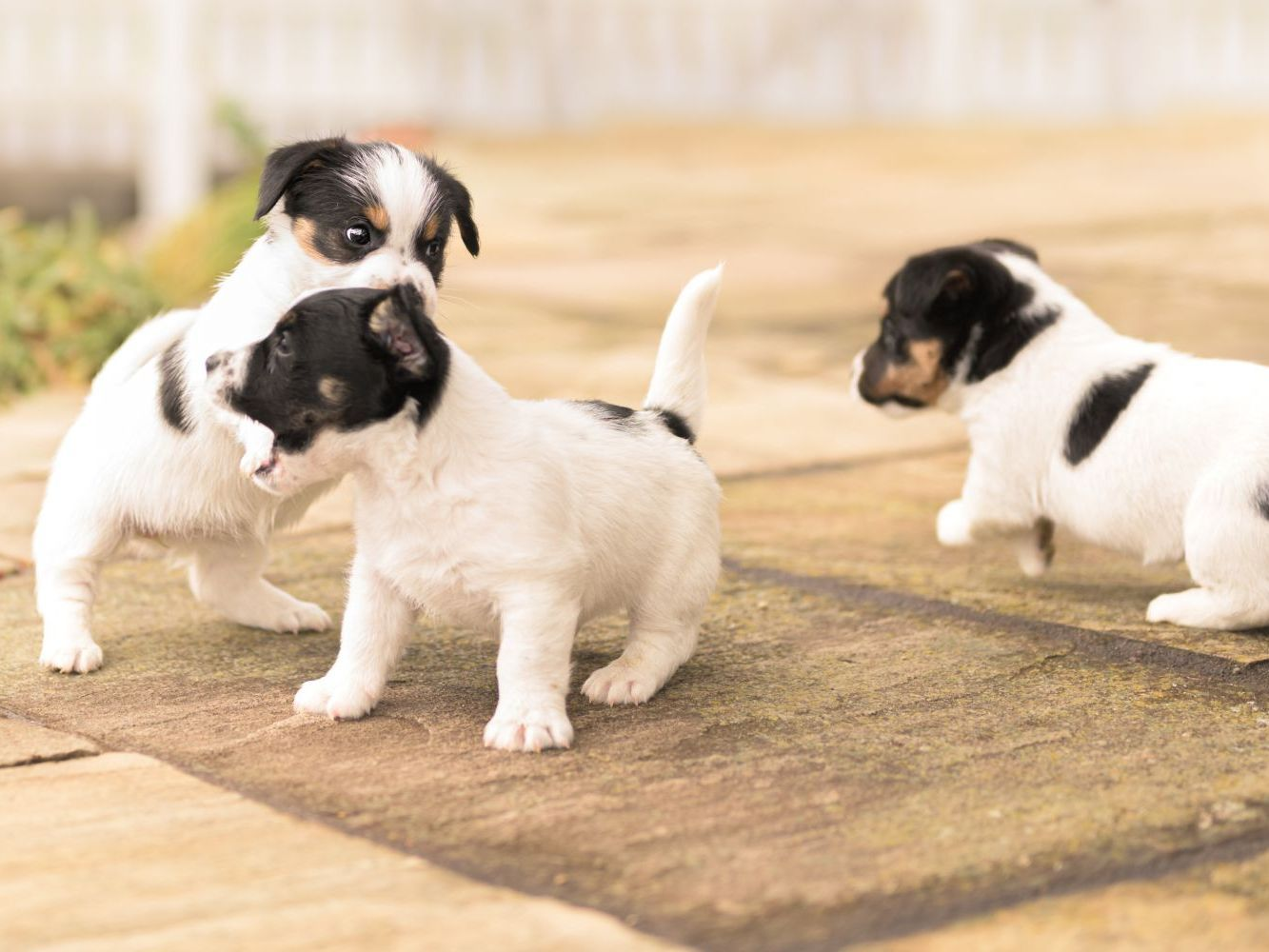
Next Steps as Your Puppy Grows
From Eight Weeks On
Your eight-week-old puppy is firmly in the learning zone: take advantage of their natural capacity for learning at this stage to start patient and consistent puppy training, putting the boundaries in place that will shape their behavior in the long-term.
Positive reinforcement is the way forward as you acquaint your new puppy with the house rules. Socialization and play are important at this stage too. Puppies who get used to other pets, people and sounds early on will be more relaxed in company as they get older. Check out puppy interactive toys that may also aid their mental stimulation, while puppy classes can be a great way to get them used to other dogs (provided they are supervised sessions with healthy, fully vaccinated dogs or other healthy puppies)
Your puppy’s first walk
At around 12 weeks, after their first set of vaccinations, it will be time for your puppy's first walk. Check with your vet if you’re not sure about when your puppy is ready to be taken outside.
At first, walks will be more about getting used to their new collar and leash, and to the outdoor environment with all its exciting (but possibly quite overwhelming) smells, sights and sounds. Walks as exercise and leash training for your puppy will come later.
Now is also the time to think about puppy obedience training classes if you haven’t already done so; they’re a great way to aid their ongoing socialization progress.
Sleeping Patterns
All that learning, exploring and discovering is tiring work. As they grow, your puppy will still need a lot of sleep. Exactly how much depends on their breed and will change week by week. Just don’t be surprised to see your growing pup romping around one minute and curled up fast asleep the next.
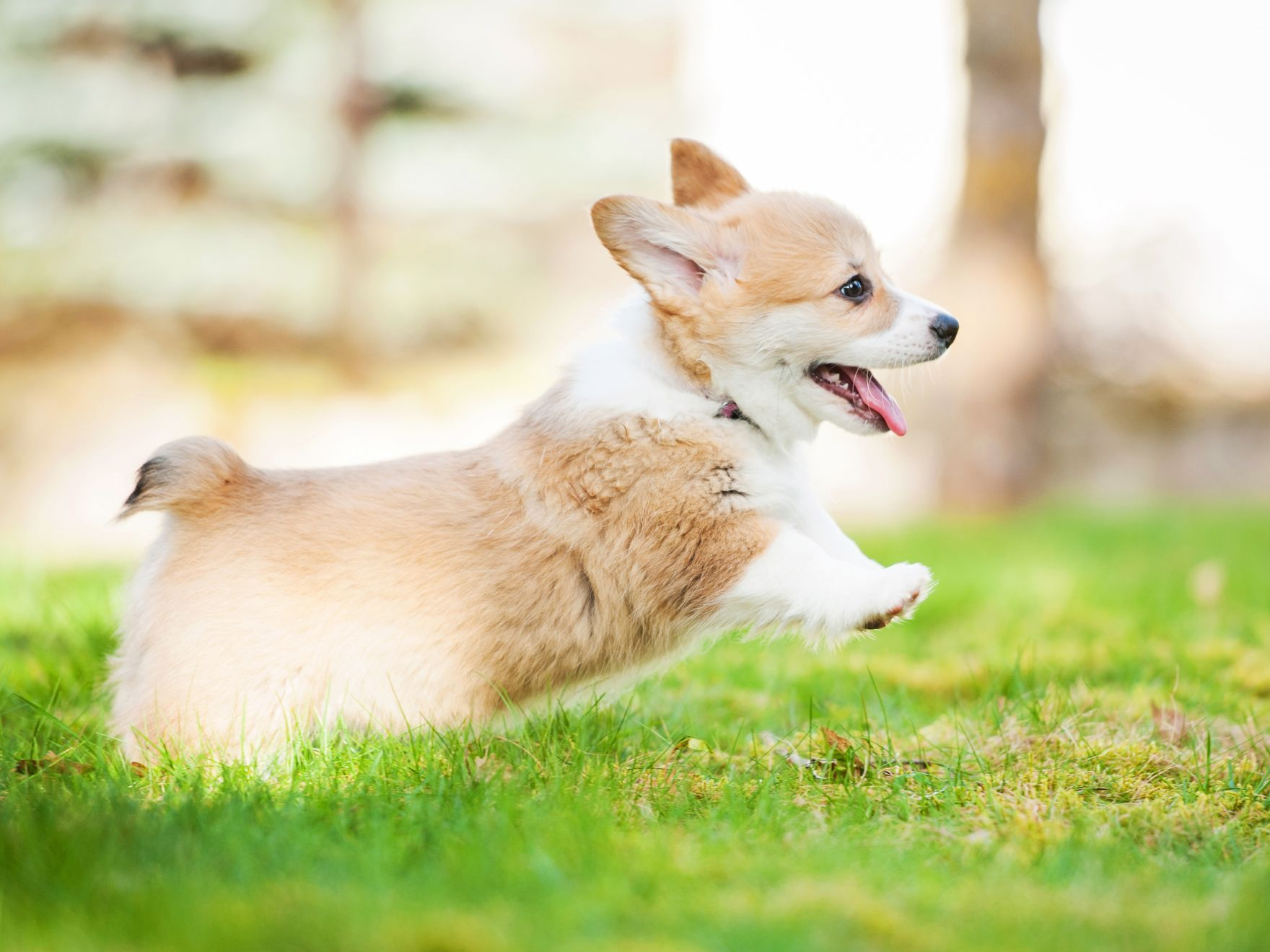
When Does Your Puppy Become an Adult Dog?
The answer is… it depends on their breed. Puppies of all breeds, large or small, grow rapidly, although the pace will vary. While small dogs grow quickly to around 20 times their birth weight, larger breeds grow to up to 100 times their birth weight, but much more slowly.
- Large breeds will have started developing the skeletal structure they need for adulthood. They will be half their adult weight but have at least double the nutritional requirements of an adult dog.
- Small dogs will be going through their most intense growth period.
- Larger breed dogs continue to grow steadily, particularly their skeleton, organs, and muscles, from eight to nine months onwards.
- Small breeds’ growth starts to trail off as they reach their adult weight.
Giant breed puppies will reach full maturity, gaining the bulk and muscle of an adult dog.
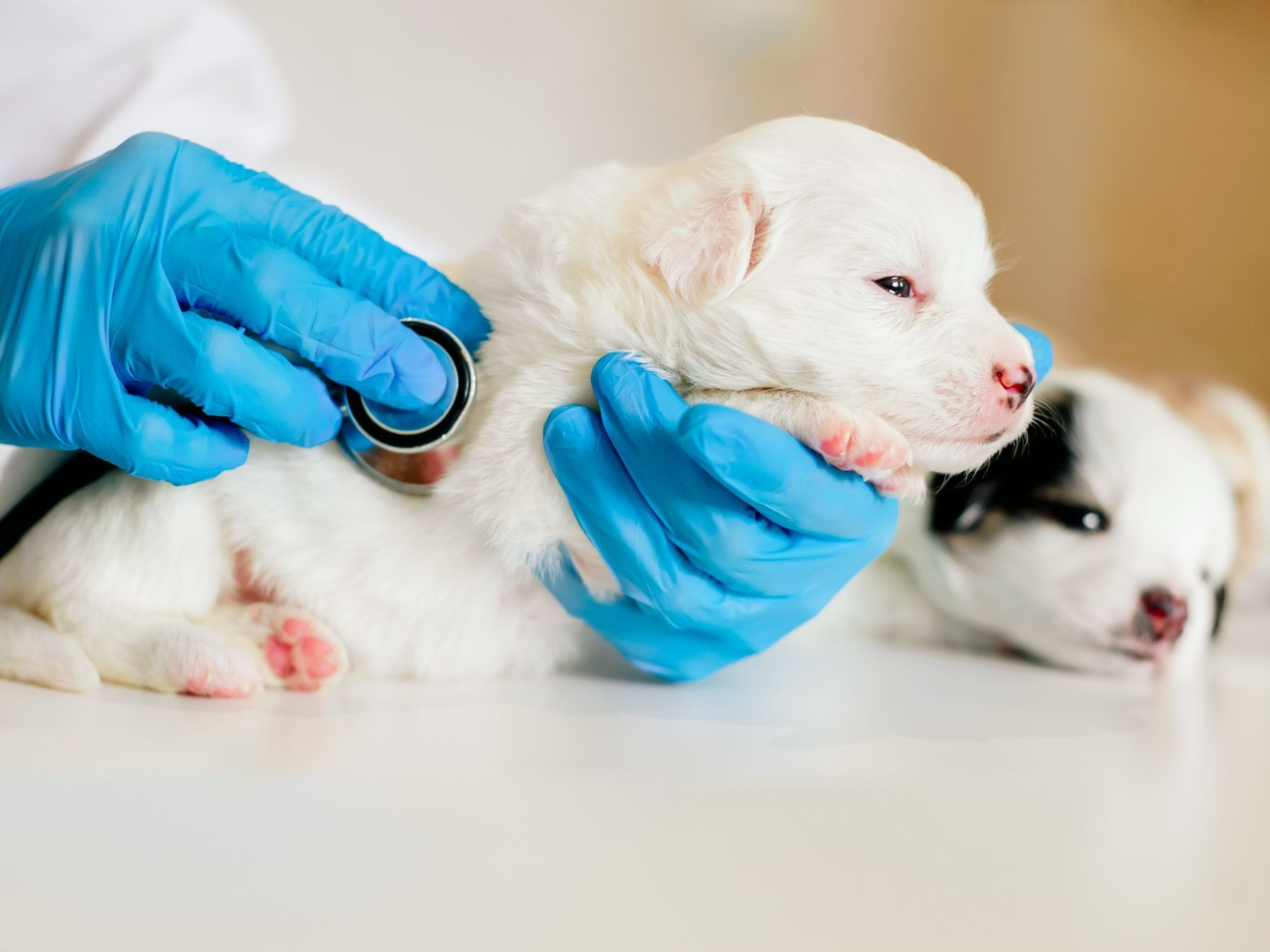
The Vet: Your Dog’s Best Resource
As a new dog owner, you will quickly get used to regular vet visits for your puppy’s vaccinations and early health checks. But veterinary care is important throughout your pet’s life.
Throughout your pet’s transition from puppyhood to adult dog, your vet can advise you on ways to safeguard your puppy’s health and wellbeing, including:
- Flea and tick control
- Deworming for your puppy
- Monitoring their growth
- Putting an efficient dental care routine in place
- How to groom and look after your puppy’s coat
- Making sure vaccinations stay up-to-date
- Advice on nutrition to prevent obesity, a big risk to your dog’s health
Becoming a dog owner is a big step, and watching a puppy grow and develop in their early weeks and months is an exciting privilege as well as an important responsibility. It’s your role to ensure your dog is well cared for right from their earliest weeks. With the right information, you’ll be able to pave the way for your dog’s long, healthy and happy life with you.
